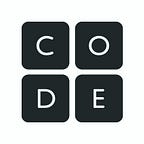How coding with empathy can make science more inclusive
Empatico connects middle schoolers from the U.S. and Egypt to bridge cultural gaps and bring more diversity to science and technology.
Why would a coding project benefit from having participants from different cultures on opposite sides of the world? It fosters greater empathy and reduces bias, according to Code.org and Empatico, organizers of the Coding with Empathy Challenge.
Empatico, created by the KIND Foundation in 2017, is a platform that connects classrooms around the world through live video and collaborative activities, bringing people together across cultures to build empathy. So far, Empatico has connected more than 43,000 educators and 60,000 students in 163 countries.
In the Coding with Empathy Challenge, students examine their impressions about what makes a computer scientist, and teachers try to understand how these perceptions are formed. “When technology is developed, a lot of times it reflects the biases of the creators,” says Shraya Sharma, Associate Manager of Content at Empatico. “To mitigate those biases, it’s important to bring diversity and inclusion into the field.”
Along with learning coding skills, students go out into their communities to observe challenges experienced by their community members, and understand how these challenges impact different individuals. Once students identify an issue they want to address, they start discussing the technology they can create to help solve it. Throughout this process, students connect with their partner class to learn about each other’s communities, share their stories and ideas, provide constructive feedback, and have fun together.
As part of the challenge, Empatico connected 187 students in the United States with 226 students in Egypt. The participants addressed problems such as climate change, Cairo’s notorious traffic congestion, and even modifications to Wudu, an Islamic process for cleansing parts of the body before praying. Maryam Sherif, one of the teachers involved in the program, explained “[Wudu] is pretty challenging for older men, so we tried to develop an idea to help them.”
A second round of the challenge in the U.S. and Egypt plans to engage an additional 400 student participants in 2023.
“Social and emotional skills are very important to succeed in science and STEM careers,” says Alicia Santiago, a developmental neurobiologist and cultural and diversity consultant who is helping Empatico and Code.org develop the program. “It’s also a fantastic way to help youth relate to science and coding careers and making real-world connections.”
Studies show that the ability to interact, cooperate with, and learn from people of different backgrounds benefits students by showing them how to interrogate systems and processes, how to effect change, and how to succeed in collaborating across borders. Making sustained interpersonal connections with someone who is different can also improve perceptions of one’s own culture, country, or identity group.
“In computer science, the best products are created by teams consisting of members with varied backgrounds who listen to and respect one another’s ideas,” says Code.org’s chief academic officer, Pat Yongpradit. “These principles can be developed in the classroom by fostering students’ social and emotional development through play.”
“The association between Code.org and Empatico was a natural fit,” notes Travis Hardy, Senior Director of Programs at Empatico. “It reinforces the skills we both care about,” he adds.
To decide which classrooms to pair up, Empatico built a tool that matches teachers and classrooms with another classroom in a different country and connects them through a combination of live video, file sharing, and research-based activities.
“Teachers create an account, enter the age of the student, when they’re available to connect over live video, what language they want to connect in…what type of activities they’re interested in, and we use that to give them a list of potential classrooms to work with,” Hardy explains.
There is plenty of room to grow in Egypt. The project needs to enable more children to join, Sherif says. Ahmed Hatem, another teacher involved in the project, thinks the classes need to go beyond the basics of computer science to help students with their scholastic undertakings.
Read more about the project here. Interested in joining future Empatico programs? Fill out this form.
—Martina Pometlova, Code.org
The Coding with Empathy Challenge is supported by the Stevens Initiative, which is sponsored by the U.S. Department of State with funding from the U.S. Government, and is administered by the Aspen Institute. The Stevens Initiative is also supported by the Bezos Family Foundation and the governments of Morocco and the United Arab Emirates.
